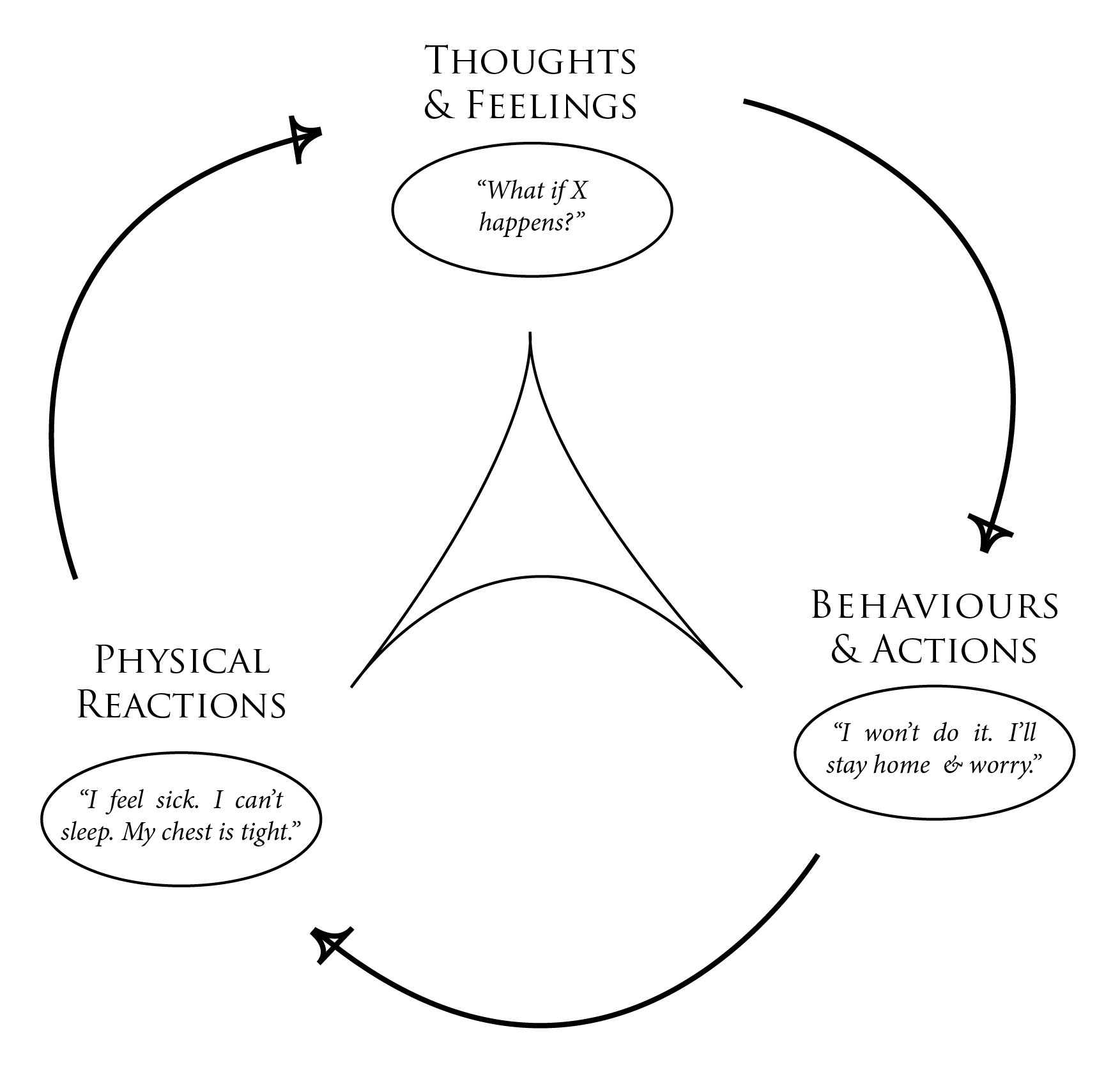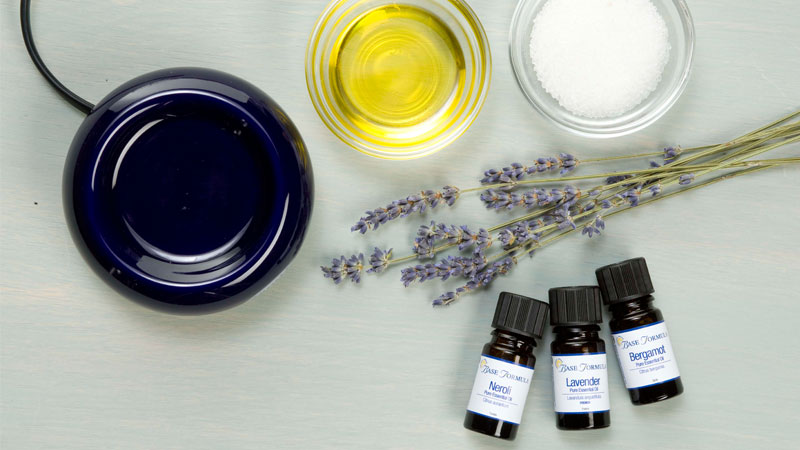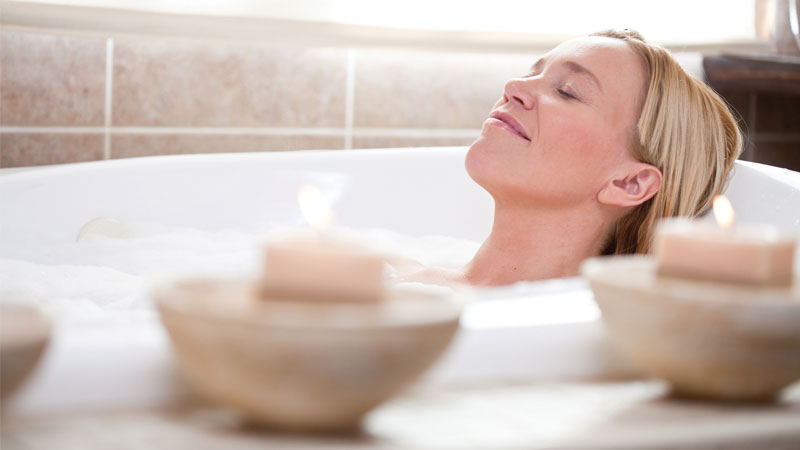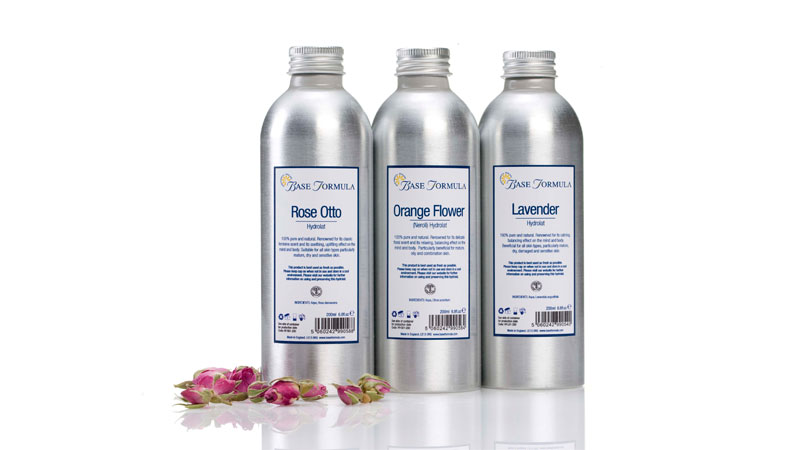Aromatherapy & mental health: emotional blending

Mental health and behavioural problems are reported to be the primary drivers of disability worldwide. In England, statistics show that 1 in 4 people will experience a mental health problem of some kind each year and that 1 in 6 will experience a common mental health problem (like anxiety or depression) in any given week. These figures have been rising since 2000, and experts are now predicting a mental health crisis following COVID-19. Latest data from the Office for National Statistics shows that depression rates have doubled since the pandemic began, with 1 in 5 adults experiencing some form of depression in early 2021.
Common mental health challenges include depression and generalised anxiety, panic disorder, phobias, obsessive compulsive disorder, addictions (like alcohol, drugs or gambling), post-pregnancy issues, attention deficit hyperactivity disorder, eating disorders (like anorexia and bulimia), personality disorders, and all sorts of generalised non-specific problems. Such challenges impact health not only on a mental-emotional level but can diffuse into the physical body by affecting other things such as sleep and general wellbeing, which can make you feel even worse. On a basic level we will show here how the mind, body and spirit connect; taking anxiety as an example – this is how it works:

This can sometimes become a vicious cycle: but don’t worry - it can be broken! With aromatherapy, not only can you select essential oils to care for your wellbeing and to try and change your emotional thoughts and feelings, but you can choose oils to support changing your behaviours and actions and use them therapeutically for any physical reactions you have to your challenges. Essential oils therefore work on all levels to support mental health challenges. Not only can they help with the underlying mental-emotional issues, but they can also help balance the rest of the challenges or symptoms you may be experiencing. Read on for more information on the best oils to use and ways to use them.
First rule - follow your heart (via your nose!)
So often mental disorders are due to suppression of our true selves, so in using aromatherapy essential oils make this your first step towards taking back control. Essential oils are YOUR choice; you are deciding to put them into your body, you are deciding which ones you love enough to let them help you. Once they are added into your body system, they work their way through the blood stream to where they are needed in order to help create more balance; their formulation alters the body’s chemistry, but entirely naturally because they are made only from plant extracts. It’s beautiful, really! When selecting aromatherapy oils, don’t be hasty; make sure you smell each oil and really ‘check-in’ with which ones you are drawn to – which ones really make you feel GREAT at that moment (it changes depending on how you feel and what you need). The ones your body needs are the ones you LOVE the smell of. It’s so important to follow what your heart desires, via your nose, especially where mental health is concerned.Bringing back balance: essential ‘emotional’ oils
We focus here on a few essential oils which have particularly 'mind-related' therapeutic properties! Read about them, smell them, and experience which ones feel right for you…
Lavender: Obviously the first essential oil on the list is going to be Lavender – everyone knows it! But Lavender is a funny one because some people find it reminds them of sad memories (your sense of smell is linked via the limbic system to your memory), so if that’s you, there are plenty of other options - you could try Sweet Marjoram for instance as an alternative! If you do love Lavender oil though, it’s high ester levels make it great for de-stressing, relaxing, soothing and calming the nerves and generally balancing emotions. It’s also great for insomnia.
Rose: A personal favourite of mine, Rose essential oil is beautiful! Perfect for balancing the emotions, it is a powerful anti-depressant used in situations where there has been a lot of stress, anxiety or grief. Rose is also great if your issue is linked to hormones, as it has an affinity with the female reproductive system.
Ylang Ylang: Has a beautiful, floral scent which is great for depression and anxiety, and any nervous disorder. Ylang Ylang essential oil is also great for releasing anger, especially when related to shock and fear. Great to relieve the more physical aspects of mental-emotional conditions too!
Jasmine: A strong essential oil for lifting depression, Jasmine is said to help boost confidence and decision-making. Similarly, to Rose, it helps with hormonal issues – and they blend well together, too!
Chamomile: A comforting oil that is really soothing for the nervous system. It is great for anxiety, as well as any other ‘hyped-up’ states – panic, phobias, etc – anything where your nerves feel ‘on edge.’
Clary Sage: Has a powerful euphoric effect which helps lift depression but is also calming for the nerves. It is great for work-related stress.
Bergamot: Is said to be ‘nature’s Prozac,’ so it is high on the list of essential oils that support mental-emotional imbalances. In particular, it is a great anxiety-reliever, and helps depression that is related to anxiety, as well as Seasonal Affective Disorder. It has a really lovely, uplifting, light citrussy scent which is just perfect!
Sandalwood: Is a lovely relaxing, yet uplifting woody-scented essential oil which helps to quieten the mind and soothe irritability. It also helps provide clarity of thought.
Patchouli: Is a beautiful oil for boosting confidence. It has relaxing mind-calming properties that help all manner of emotional issues. It is meditative and hypnotic; a firm favourite for helping soothe the mind.
Grapefruit: This oil is lovely and uplifting for those who suffer low mood, stress, anxiety, or negative thoughts, as well as addictions or obsessive-compulsive behaviour. It also has an affinity for digestion, so if you suffer with disordered eating it can be a lovely tonic.
Mandarin: Is a great essential oil – it is one of the safest, and therefore good for kids and during pregnancy (consult your GP first). It is a great nerve-calmer, whilst also being a lovely and uplifting anti-depressant.
Lemon: is a cheery and extremely uplifting anti-depressant that can help combat low mood and relieve any associated physical and mental fatigue. It is also wonderfully lifting.
Choose how you use aromas
Select which essential oils you think will help you, then start to combine them. Have a play around! Choosing the oils that you resonate with, is the first step towards following your heart! Now you just need to decide on your favourite method of application, then you're all set to go! Pick up to 3 of your favourite oils from the above and use one (or more) of the techniques below.Scented room diffusion
Perhaps the most common method - other than booking a professional Aromatherapy massage - is diffusion of essential oils into a room, via either an electrical diffuser, or candle burner. Pop 6-9 drops of essential oils into a bit of water in the diffuser/burner and off you go (please check usage instructions if using an electric diffuser as they will vary)! Diffusing is a lovely option for during the daytime whilst at work, or before bed. Alternatively, mix your essential oils with some Himalayan Pink Salt or Dead Sea Salt and place in a small bowl to fragrance your room.
Massage & moisturise
This is great if you want to indulge and submerse yourself in the aromatherapy oils. For a real wellbeing treat, and some super pampering, book yourself in with your local Aromatherapist who can create a bespoke blend for you. Alternatively, do it yourself! Set some time aside for you, light some candles, create a relaxing space, and make up a massage oil using 15ml Grapeseed oil and up to 6 drops total of up to 3 essential oils. Massage this on to your body in long, slow strokes towards your heart, starting from your toes, and working up towards your head. Lie down and try some beautiful deep breathing techniques – try inhaling for 4, holding for 7 and exhaling for 8 – and just let your mind wander, noting any themes that come up and letting them go. You could use the remaining blend as your morning moisturiser for the rest of the week and see how that helps too!
Aromatherapy treatment bath
If you have a moment to yourself, switch off all phones and gadgets and run yourself a blissful bath. Combine up to 9 drops of essential oil in 15ml of Bath Oil or SLS free Bath & Shower Gel and add this into the bath. Close all the windows and doors and do some deep breathing (as above) to get the oils into your system. Enjoy!
Combine oils into products
If bathing isn’t your thing, and you’d rather a quick fix in the morning before work – why not try adding essential oils to your existing products? Pour 15ml of your shower gel into a pot and add up to 6 drops of essential oils for your morning shower! If you want to add oils into a facial product, use 1 drop in 5ml – Lavender is particularly balancing for the skin on your face, or for oilier skin you could try Lemon.
Meditation spritz
Feel like you need a boost whilst you’re out and about? Create a meditative spritz. Pour 100ml of Hydrolat into a spray bottle (try Lavender, Rose or Orange Flower), and add up to 30 drops of essential oil. Shake well and spritz this over yourself throughout the day to keep you calm, uplifted and motivated!

My final ultimate advice
Personally, I advise to play around and see which scents you love to combine. However, MY ultimate favourite blend for helping balance and relax the mind is a calming blend of 2 drops Rose Otto, 1 drop Ylang Ylang and 3 drops Bergamot, even just diffused into the room – it’s so effective!
Most importantly though, remember: your wellbeing is priority! So, the main point is please try to make some time for you – and, whichever oils or method you choose, follow your heart (and nose) to a happy, balanced mind!
Nicole Barton
Consultant Aromatherapist
Read other articles by Nicole Barton




